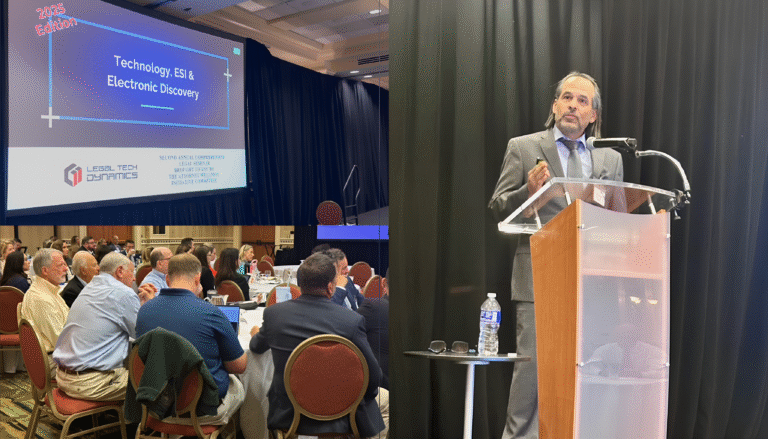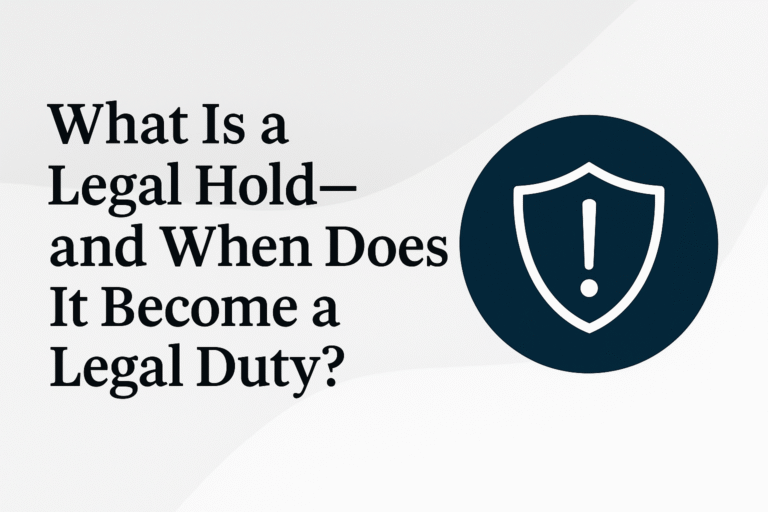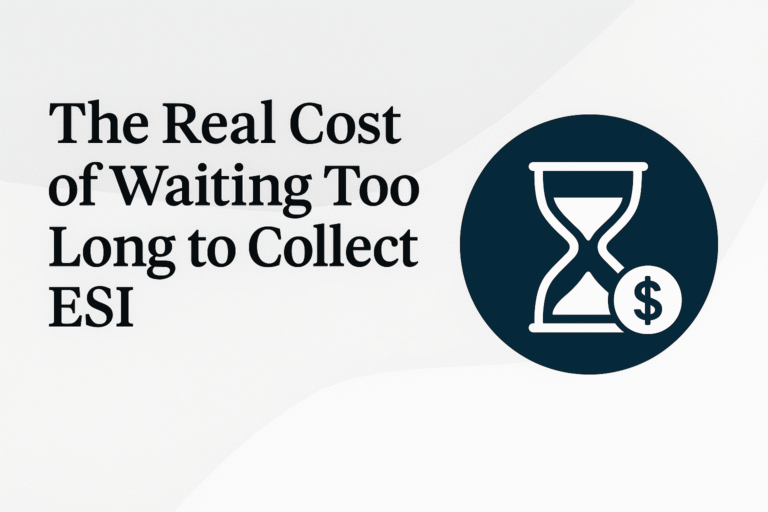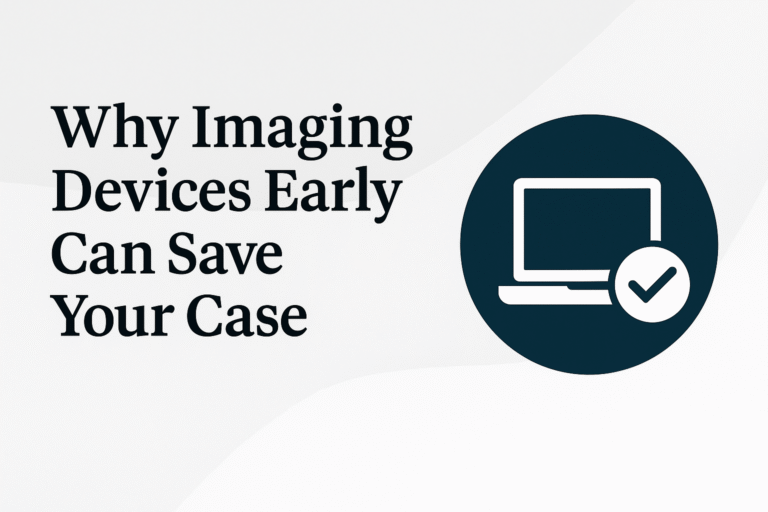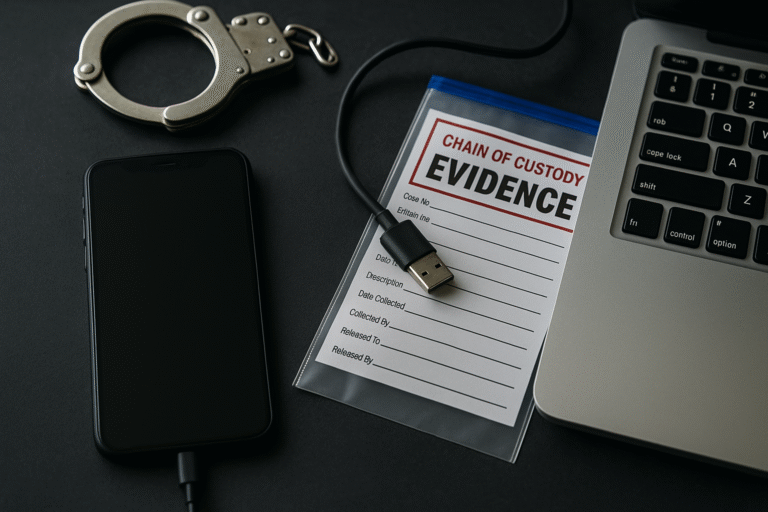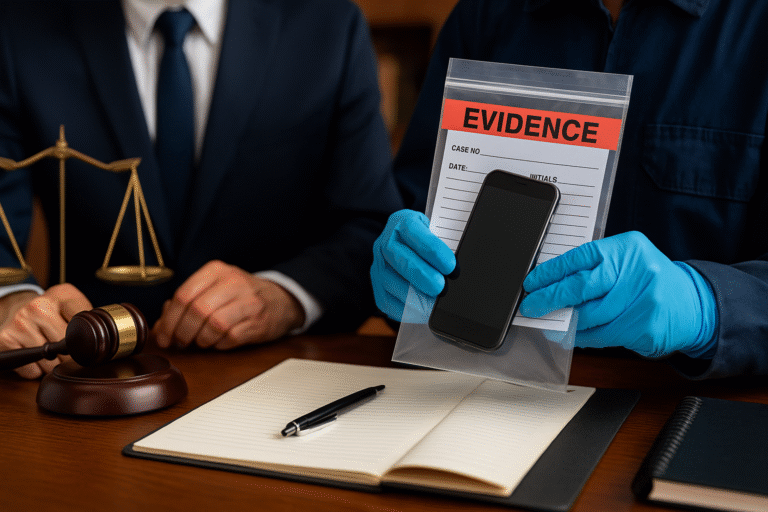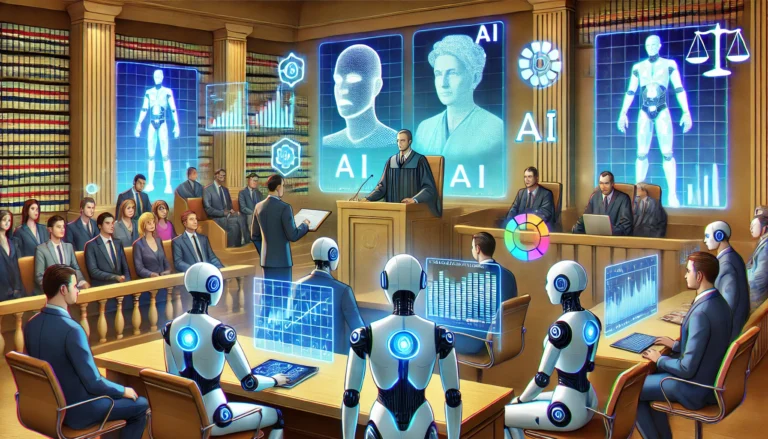By Carlos A. Baradat, Esq. | Legal Tech Dynamics
In today’s interconnected world, digital forensics has become a linchpin in modern litigation. With most of our communication, transactions, and daily interactions taking place on electronic devices, the ability to uncover and analyze this data is more critical than ever. Whether in family law disputes, criminal investigations, or civil cases, digital evidence often holds the key to the truth. But how does digital forensics work, and why is it so vital in today’s legal landscape?
This article delves into the role of digital forensics in litigation, explaining how metadata, timestamps, and even deleted files can impact case outcomes. Let’s explore how uncovering the digital truth can be the difference between winning and losing a case.
The Rise of Digital Forensics in Litigation
It’s no exaggeration to say that digital evidence is everywhere. According to studies, over 90% of global communication now occurs in a digital format. From text messages and emails to social media posts, every interaction leaves a trail. For legal professionals, understanding this digital footprint is no longer optional—it’s essential.
Digital forensics, the science of recovering, preserving, and analyzing electronic data, plays a pivotal role in uncovering evidence. This evidence often lies in metadata—the unseen information that accompanies every file. For example:
- Metadata in Photos: A simple photo can reveal where and when it was taken, along with device details like the type of camera and lens.
- File Timestamps: Knowing when a document was created, modified, or accessed can refute claims or substantiate timelines.
- Deleted Data: Contrary to popular belief, deleting a file doesn’t mean it’s gone. Digital forensics tools can recover deleted emails, texts, and documents, bringing crucial evidence back to light.
Real-World Applications: Family and Criminal Law
Family Law: Custody and Divorce Cases
In family law, digital evidence can provide clarity in contentious disputes:
- Location Data: GPS tracking from smartphones or smartwatches can confirm where a party was at a specific time. This data is critical in cases involving alibis or contested custody arrangements.
- Communication Logs: Text messages and emails often serve as evidence in disputes over intent or misconduct.
- Social Media Activity: A seemingly innocent post can contradict claims made in court. For example, a vacation photo might dispute a claim of financial hardship.
Criminal Law: Proving Intent and Behavior
In criminal cases, digital forensics often provides the hard evidence needed to corroborate witness testimony or disprove alibis:
- Mobile Devices: Call logs, text messages, and even location pings from cell towers can place a suspect at a crime scene.
- Digital Surveillance: Data extracted from security cameras or doorbell systems often fills in critical gaps in timelines.
- The Internet of Things (IoT): Smart devices like home assistants or car black boxes can reveal audio logs or driving patterns relevant to a case.
The Power of “Deleted” Files
One of the biggest misconceptions is that once something is deleted, it’s gone forever. The reality is far from it. When a file is “deleted,” its location is flagged as available, but the data often remains intact until overwritten. Digital forensics tools can recover these files, providing attorneys with access to crucial evidence.
Take, for example, a divorce case where one party claims to have deleted incriminating financial records. A skilled forensic investigator can recover these files, piecing together the financial trail to uncover hidden assets or inconsistencies in statements.
Ethical Considerations and Legal Challenges
With great power comes great responsibility. The use of digital forensics raises ethical questions, particularly regarding privacy and data protection. Legal practitioners must ensure that all evidence is collected lawfully, adhering to chain-of-custody protocols to maintain its admissibility in court.
Moreover, as the volume of digital data grows, attorneys must work closely with forensic experts to sift through massive datasets efficiently and ethically. Leveraging tools like AI-powered analytics and eDiscovery platforms can streamline this process, ensuring only relevant data is examined.
Tips for Attorneys: Harnessing Digital Forensics
- Start Early: Preserve electronic evidence as soon as possible. Engage forensic experts at the outset to avoid data loss or tampering.
- Know the Sources: Beyond computers and smartphones, evidence may reside in smart home devices, cloud storage, or wearable tech.
- Understand Metadata: Learn how to interpret metadata to bolster your case with concrete timelines and corroborating details.
- Educate Your Team: Familiarize your legal team with digital forensic basics. While you don’t need to be a tech expert, understanding the possibilities can guide your strategy.
- Partner with Experts: Collaborate with certified digital forensic examiners who can testify to their findings, ensuring credibility and admissibility.
Digital forensics is revolutionizing the way cases are investigated and litigated. From proving alibis to uncovering hidden assets, the digital footprint left behind by modern technology offers invaluable insights. For attorneys, mastering the basics of digital forensics and partnering with experts can give your practice a significant edge in an increasingly digital world.
As legal professionals, our responsibility is to seek the truth. With the right tools and knowledge, we can ensure that no stone—or file—is left unturned in the pursuit of justice.
—–
Legal Tech Dynamics: Digital Forensics, Legal Tech Consulting, and eDiscovery Services in Central Florida, South Florida, and Nationwide
At Legal Tech Dynamics, we specialize in digital forensics, eDiscovery, legal tech consulting, law firm technology training, attorney ESI consulting, and litigation consulting. With offices in Naples, FL, and Boca Raton, FL, we proudly serve clients throughout Central and South Florida, as well as nationwide, including major cities such as Fort Lauderdale, Miami, Tampa, Fort Myers, Marco Island, West Palm Beach, and Orlando.
Whether you’re navigating digital evidence analysis, managing litigation holds, responding to requests for production, or seeking guidance on ethical and privacy considerations in eDiscovery, our experienced team is here to help. We deliver tailored solutions to attorneys, law firms, corporate clients, and individuals, ensuring secure digital data, improved legal case management, and successful eDiscovery outcomes.
Call us today at 239-227-6359 to learn how we can support your legal and technical challenges and help you achieve your goals with confidence.


